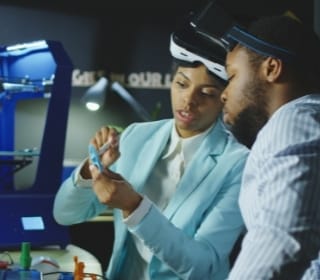STEM Careers
Engineers, technologists, and technicians are changing the world all of the time. They dream up creative, practical solutions and work with other smart, inspiring people to invent, design, and create things that matter.
Types of engineering

Aerospace

Agriculture & Biosystems

Biomedical

Chemical

Civil

Computer Science

Electrical

Environmental

Industrial

Manufacturing

Materials Science

Mechanical

Mining & Metallurgical

Nuclear

Petroleum
Project Management
What is licensure & why is it important?
Licensed professional engineers, P.E.s, are charged with preserving the essentials that protect the health, safety, and welfare of the public. By meeting standards in education, exams, and experience, professional engineers demonstrate that they have the skills and knowledge needed to perform their jobs. As licensed professionals, they must continue to practice in a manner that is both technically competent and ethically sound. Their first responsibility is to protect the public.
10 Reasons to Love Engineering
What Engineers Do
Engineers, technologists, and technicians are working to change life for the better in ways that we can hardly even imagine, like:
Fitness Trackers and the Evolution of Medical Technology
Wearable devices that only track steps and heart rate are so 2019. The next big trend is devices that track specific health issues, like wearable continuous glucose monitors for diabetes patients.
Combine this with 5G sensors that can transmit the data directly to health care professionals and we’ll begin to see a big shift in patient monitoring and personalized care.
Recyclable Sneakers?
Your sneakers are stinking up more than just your closet. Did you know that 90% of shoes end up in landfills? Yet, when a car reaches the end of its life cycle up to 80% of a car can be recycled. Why the difference? It’s mostly a result of the manufacturing process. Traditionally, companies don’t think about what happens when a product reaches the end of its usual life.
But a new commitment to an idea called circular economy is changing that mindset. Its challenging companies and communities to design waste out of manufacturing process and to think about future uses of the materials that make up your sneakers once they are no longer in style or fit.
Meet Some Engineers
What do engineers really do? How do they spend their days? The answers may surprise you.
Engineering Trends
$91,010
Engineer’s average salary 3
$70,501
Engineering Technologist’s average salary 3
$61,000
Engineering Technician’s average salary
1 million
more STEM jobs in 2029 than there were in 2019. 4















